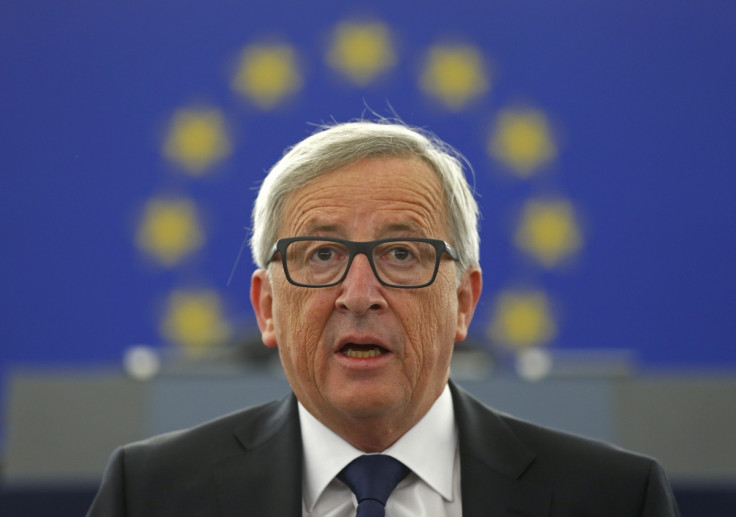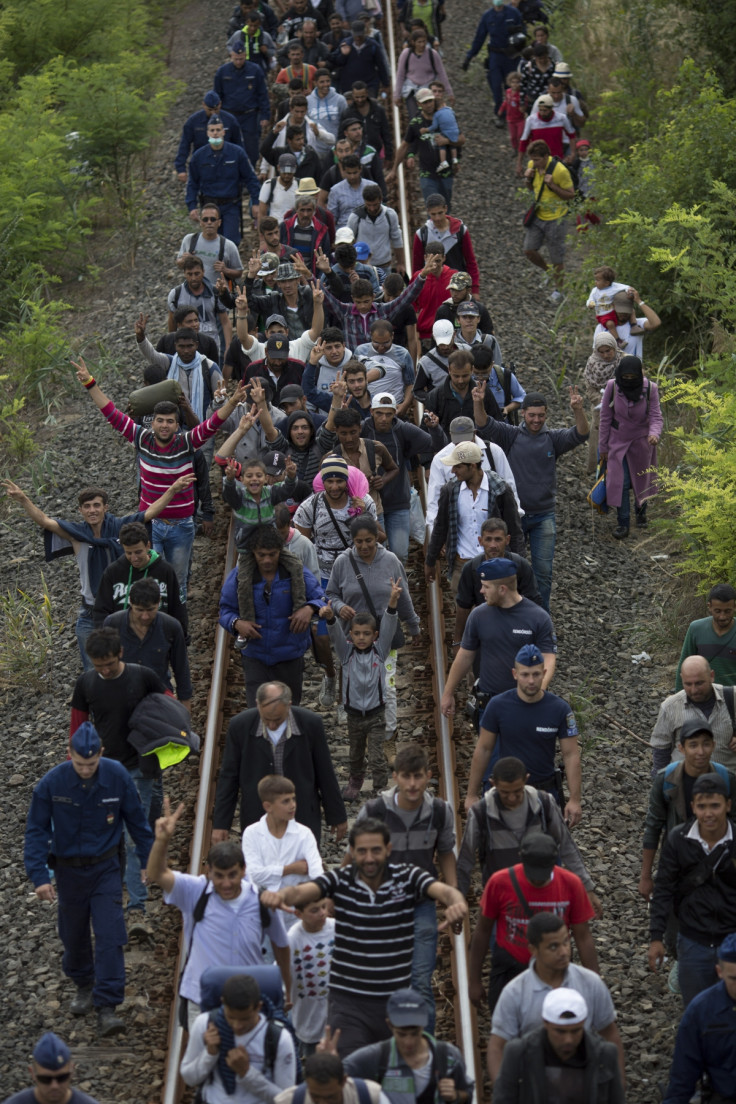Migrant crisis: Jean-Claude Juncker opens EU's doors to 160,000 refugees in emotional appeal

The President of the European Commission Jean-Claude Juncker has announced quotas for the distribution of 160,000 refugees across the EU's member states in an emotional appeal in the midst of the continent's migrant crisis.
Under the plans, which are opposed by a number of EU members in eastern Europe, refugees who arrive in 'front line' countries such as Italy, Greece and Hungary would be moved on to Germany France and Spain, the EU head said. He added that south eastern European nations "cannot be left alone to cope with this enormous challenge".
Europe will deal with 160,000 migrants in total according to the proposals by Junker. On top of the increased capacity for 120,000 refugees announced, in May the EU took emergency measures to deal with 40,000 migrants in Greece which is included in the figure.
The former Luxembourg premier, who has been critical of individual nation's responses to the crisis, made the announcement to the European Parliament as part of his state of the union address.

He said what was needed was a "bold concerted action by the European Union" as he invoked Europe's own past of refuges crises. "We can build roads we can built fences but imagine if it was you, your child in your hands, your world torn apart around you ... there is no sea you would not sail and no border you would not cross," he said in a charged appeal.
Junker also announced plans to combat people smuggling, support UN refugee programmes and create more jobs in Africa and the Middle East. He asked for the creation of an African trust fund of €1.8 bn to address the route causes of the migrant problem.
In efforts to ease the fears of nations such as Hungary, Poland, Romania, Slovakia and the Czech Republic which oppose the binding quotas, Junker announced initiatives to streamline asylum application, ensuring those who do not need protection are removed.
Germany and Angela Merkel have led the calls for an EU quota and the preservation of the Shengen agreement which allows for free movement of people across the continent. Junker said his commission would not abolish the Shengen zone.
Germany's announcement that it expected to process 800,000 asylum seekers this year alone, dispensing with the Dublin protocol whereby refugees were expected to stay in the first country they arrived in, has increased the call for a quota.
Britain, which has an opt out from EU asylum policies, has said it would accept up to 20,000 Syrian refugees over five years. As a prelude to Britain's negotiations with the EU, Junker has said he will seek a "fair deal" in negotiations with Britain
"The challenge of working on a fair deal for the United Kingdom within a European Union committed to the four freedoms of the single market and the values which all 28 member states share," he said
Scene of chaos have erupted on Greece's Aegean Islands and in Hungary as the south east of Europe bares the brunt of the arrival of over 4,000 migrants in the EU every day.
The UN High Commission for Refugees has said it expects 400,000 migrants to have arrived in Europe by sea in 2015. The body's High Commissioner, Antonio Guterres, has attacked the Eu's response to the crisis as"dysfunctional".
"It is clear that this is a serious crisis, but for me it is also clear that if Europe would be properly organised, it would be a manageable crisis. We are talking about 4-5,000 people per day, in a union that has 508 million people," he said.
© Copyright IBTimes 2025. All rights reserved.






















